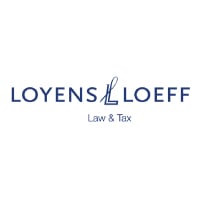
General counsel | Banque Internationale à Luxembourg (BIL)



Frédéric Sudret
General counsel | Banque Internationale à Luxembourg (BIL)
What are the projects that you are most proud of working on over the past 12 months?
We explored the opportunity to introduce an AI-based Legal suite tool within our teams to facilitate and accelerate the drafting of key client agreements.
How do you approach managing legal aspects during periods of instability or crisis to ensure the organisation’s resilience?
Proximity and proactivity with, and towards, the business obviously become even more important during periods of instability or crisis, to anticipate and efficiently manage legal risks. We have introduced concrete and formalised action plans with certain business lines to address their needs more closely. It is also increasingly key to work hand-in-hand with the internal control functions, such as Risk Management, as the input of the legal function is crucial in addressing topics like the transfer of non-performing loans or the review of the bank’s recovery plan.
What strategies do you employ to ensure the successful digital transformation of a legal department while maintaining compliance with your country’s data protection laws?
At this stage, our focus is on internally developed AI-based tools and, more specifically, how we can leverage these tools to build an efficient solution for our function. A concrete example is the handling of customer claims, where AI can add value without the need to source a costly external tool (which would also be difficult to integrate).
Have you had any experiences during your career as a lawyer that stand out as particularly unique or interesting?
Participating in a high-level international leadership programme at INSEAD. Indeed, many lawyers are excellent technical experts, but quite often, poor leaders.
What do you think sets you apart from other in-house counsel?
My experience in a universal systemic bank regulated by the European Central Bank, which is quite rare, along with the fact that I have been in charge of the governance of the bank, combining my legal skills with the role of secretary general.
What do you think are the most important attributes for a modern in-house counsel to possess?
Communication skills, leadership skills, and stamina are essential.
How can general counsel foster a corporate culture that supports ESG principles and compliance across all levels of the organisation?
A GC cannot do this alone. In my view, ESG topics are better addressed with a clear tone from the top at the level of the management body, supported by a dedicated ESG or Compliance team of specialists. The GC should be vigilant to avoid any abusive or excessive use of ESG statements, which could lead to the bank’s liability being engaged.
Based on your experiences in the past year, are there any trends in the legal or business world that you are keeping an eye on that you think other in-house lawyers should be mindful of?
The boundaries between the Risk Management function and the GC function are evolving, with the latter being put under pressure. A clear delineation of the GC function versus other internal control functions in the second line of defence is crucial for sound risk management.
Another trend is definitely ‘risk culture’, with a dedicated ECB guide currently under preparation.